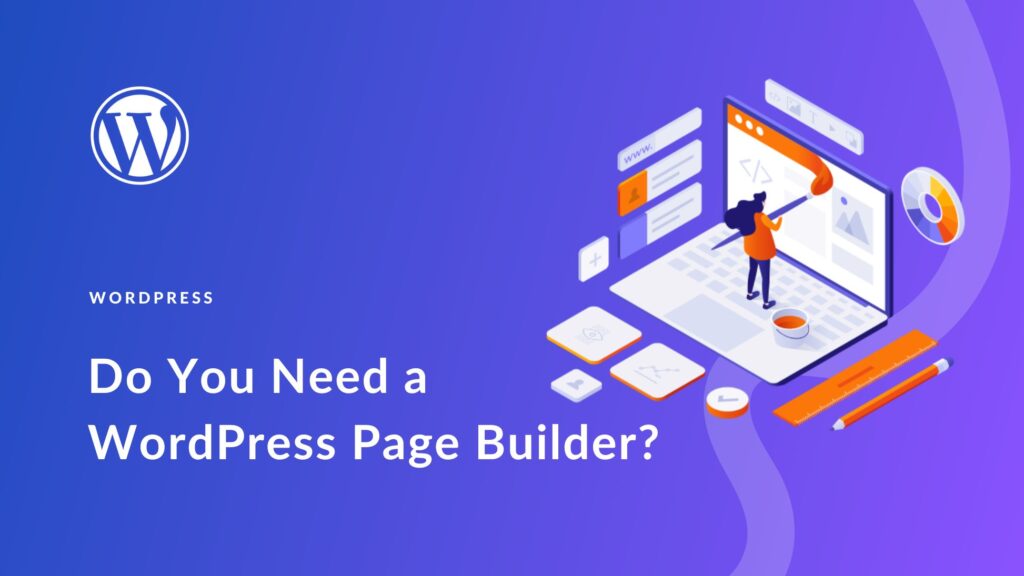As of 2024, the landscape of web development and design continues to evolve rapidly. WordPress remains a dominant platform for creating websites, and page builders have become integral tools for many users. However, with advancements in WordPress’s native capabilities and the emergence of new tools, the necessity of using a dedicated page builder is worth re-evaluating. Here are some key considerations to determine if you need a WordPress page builder in 2024:
1. Advancements in WordPress Block Editor (Gutenberg)
The Gutenberg block editor, introduced in WordPress 5.0, has significantly improved since its inception. In 2024, it offers a robust set of features that allow users to create complex layouts with ease. Enhancements include:
- Improved Block Library: A comprehensive library of blocks, including advanced layout blocks and third-party integrations.
- Full Site Editing (FSE): Enables users to edit headers, footers, and other global elements directly within the block editor.
- Reusable Blocks and Patterns: Save time by creating reusable blocks and predefined patterns for consistent design elements across your site.
Consideration: If your design needs are relatively straightforward, Gutenberg may suffice, reducing the need for an additional page builder.
2. Ease of Use and Flexibility
Page builders like Elementor, Beaver Builder, and Divi are renowned for their user-friendly interfaces and flexibility. They offer:
- Drag-and-Drop Interface: Simplifies the design process, making it accessible even for those without coding knowledge.
- Advanced Styling Options: Provide granular control over the appearance of your site.
- Pre-Designed Templates: Help quickly build professional-looking pages without starting from scratch.
Consideration: If you value a highly intuitive design experience with extensive customization options, a page builder might still be beneficial.
3. Performance and Speed
One of the criticisms of page builders is their impact on website performance. They can add extra code and scripts, potentially slowing down your site. In contrast:
- Gutenberg: Being native to WordPress, is generally more optimized for speed and performance.
- Optimized Page Builders: Many page builders have improved their efficiency and offer performance-focused features, such as lazy loading and conditional asset loading.
Consideration: Evaluate the performance impact of your preferred page builder and weigh it against the benefits of its features. For speed-critical sites, Gutenberg or a performance-optimized builder might be preferable.

4. Customization and Advanced Features
For websites requiring complex layouts, dynamic content, or custom functionality, page builders offer:
- Advanced Widgets and Modules: Such as forms, sliders, galleries, and custom post types.
- Third-Party Add-Ons: Extend functionality with additional plugins and extensions.
Consideration: If your site demands intricate designs or specialized features, a page builder can provide the necessary tools more efficiently than native WordPress alone.
5. Learning Curve and Support
Page builders often come with extensive documentation, tutorials, and customer support, making them accessible for beginners. Meanwhile, Gutenberg has its own learning curve but is increasingly supported by a growing community and resources.
Consideration: If you prefer robust support and a wide array of learning resources, a page builder could be advantageous.
6. Cost Implications
While many page builders offer free versions, premium features usually come at a cost. Gutenberg, being a core part of WordPress, is free but might require additional plugins for extended functionality.
Consideration: Budget constraints may influence your decision. Evaluate whether the benefits of a premium page builder justify the expense compared to potential free alternatives.
Conclusion
In 2024, whether you need a WordPress page builder depends on your specific needs, preferences, and the complexity of your website. For simple websites, Gutenberg’s enhanced capabilities might be sufficient. However, for more complex, highly customized sites, the advanced features and flexibility of a dedicated page builder could be indispensable. Assess your design requirements, technical expertise, performance considerations, and budget to make an informed decision that best suits your project.

